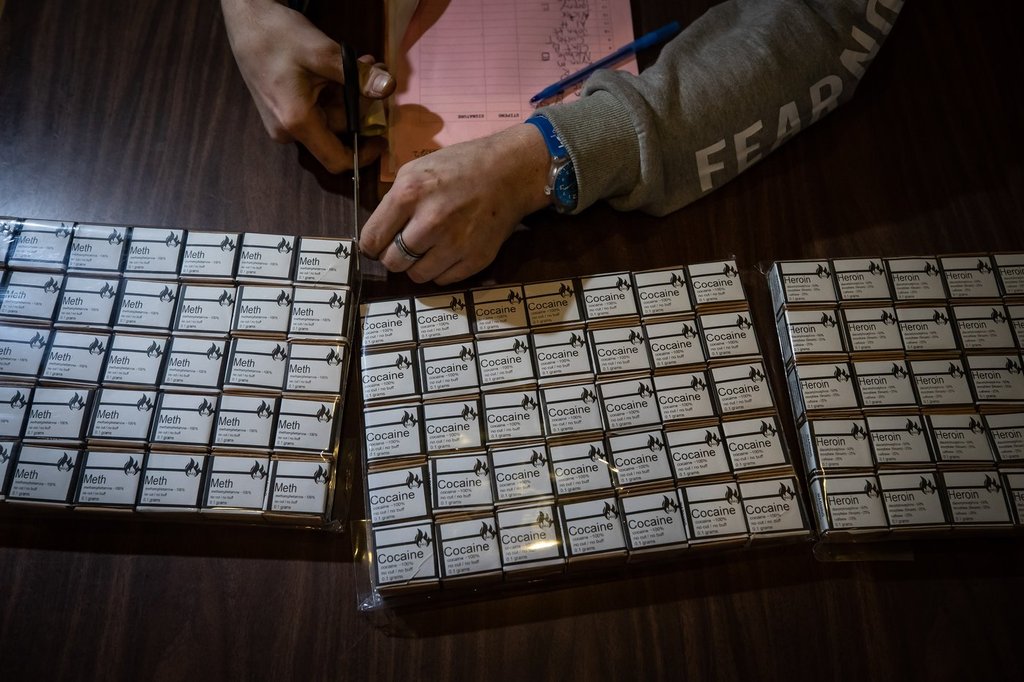A constitutional challenge by founders of a Vancouver “compassion club” who were found guilty of drug trafficking is expected to begin today at the British Columbia Supreme Court.

Jeremy Kalicum and Eris Nyx were found guilty by a B.C. Supreme Court judge earlier this month in relation to charges of possessing cocaine, heroin and methamphetamine for the purposes of trafficking.
That decision says the “the conviction will be held in abeyance pending the Constitutional challenge.”
A post to DULF’s website, dated March 3, 2025, says its legal challenge is seeking to prove that a section of the Controlled Drugs and Substances Act that prohibits possession of drugs for the purpose of trafficking is unconstitutional and “its enforcement is killing the very people it purports to protect.”
It says criminalizing alternatives to the unregulated supply of drugs forces users to rely on deadly street drugs that “disproportionately endangers lives.”
Story continues below advertisementThe post says they also intend to argue that the law perpetuates discrimination against people with disabilities, including those with substance-use disorders.

Get breaking National news
For news impacting Canada and around the world, sign up for breaking news alerts delivered directly to you when they happen. Sign up for breaking National newsletter Sign Up By providing your email address, you have read and agree to Global News' Terms and Conditions and Privacy Policy.DULF had operated the “compassion club” between August 2022 and October 2023.
In 2021, it approached Health Canada asking for permission to buy heroin, cocaine and methamphetamine on the dark web before having the drugs tested for contaminants and selling them to users through its “compassion club and fulfilment centre.”
More on BC More videos- Recipe: White chocolate kabocha squash cremeux
- Rescuers ‘punched and kicked’ grizzly during attack, says Nuxalk Nation chief
- B.C. producers frustrated after alcohol excluded from interprovincial trade deal
- Carney says ‘constructive’ talks ongoing with Alberta about oil pipeline
Health Canada rejected the application for exemption from drug laws, saying DULF’s plan presented too many public health and safety risks. The group, however, went ahead with it anyway, saying it would save lives.
The unsanctioned operation triggered political criticism, particularly after it emerged that it had initially received $200,000 of public funding from the B.C. government.
Trending Now-
![]() Carney, Modi agree to revive comprehensive trade deal talks
Carney, Modi agree to revive comprehensive trade deal talks
-
![]() Some Yoplait YOP drinkable yogurt recalled in Canada due to plastic pieces
Some Yoplait YOP drinkable yogurt recalled in Canada due to plastic pieces
The operation was shut down on Oct. 26, 2023, when officers conducted a raid and arrested Kalicum and Nyx, who were later charged with trafficking offences.
In her decision on Nov. 7, Justice Catherine Murray says the issue at trial was whether drug law exemptions granted to DULF allowed them to possess the drugs with the intent to sell them.
In the decision, Murray acknowledges that DULF was founded in response to the toxic drug crisis with the goal of distributing safe drugs and curbing overdose deaths.
Story continues below advertisementThe decision says the exemption authorized Kalicum and Nyx to test the drugs, package and label them, and provide supervised consumption of those substances, but it did not extend to selling the tested drugs to members.
The latest statistics from the BC Coroners Service shows 158 people in B.C. died from illicit drug overdoses in September, which equates to about 5.3 deaths per day.

 G20 summit opens in South Africa without Trump, Ukraine takes centre stage
G20 summit opens in South Africa without Trump, Ukraine takes centre stage
 Unique live-in drug treatment centre in Montreal allows mothers to be with their children
Unique live-in drug treatment centre in Montreal allows mothers to be with their children
 B.C. and Alberta premiers on pipeline proposal
B.C. and Alberta premiers on pipeline proposal
 Tentative deal between Canada Post and union
Tentative deal between Canada Post and union
 Carney, Modi agree to revive comprehensive trade deal talks
Carney, Modi agree to revive comprehensive trade deal talks
 Some Yoplait YOP drinkable yogurt recalled in Canada due to plastic pieces
Some Yoplait YOP drinkable yogurt recalled in Canada due to plastic pieces

